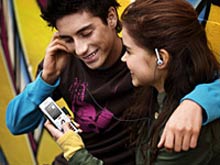Roaming technology allows mobile phones to be used on aircraft
The method of AeroMobile (UK) began to test to prove flight safety when passengers text or call on their device. Ground transceiver stations - the cause of interfering with the aircraft's communication system - are removed.
Qantas Airlines, the ACMA media agency and Australia Civil Aviation Safety Agency CASA coordinated the deployment of this technology on domestic routes on the Boeing 767.
 (Photo: asia.cnet.com) Qatas is the leader in testing, after which Emirates and Ryanair will do so later this year.
(Photo: asia.cnet.com) Qatas is the leader in testing, after which Emirates and Ryanair will do so later this year.
CASA spokesman Peter Gibson said: " Normally, when using a phone, people will contact a broadcast base station on the ground, causing the device to produce very large electromagnetic energy. AeroMobile's technique is safer because the base station will be replaced by onboard aircraft roaming devices, making electromagnetic energy reduced to a minimum. "
Therefore, if a passenger wants to use a mobile phone on an airplane, they must register for an international roaming roaming service. The cost will depend on the telecom provider but it will certainly be cheaper than the existing phone service on the plane.
However, Qantas has not allowed cell phone calls on their flights for fear of causing trouble to passengers and may require users to turn off the bell.
Why not call on the plane?
An Air China pilot noticed that before flying to Beijing, the plane had a 30 ° deviation from the flight. When searching for a cause, it is determined that a passenger keeps the mobile phone open.
Another example: When an Alitalia airline is about to land in Turin, it almost happens a disaster: the mobile phone of a passenger has turned off the automatic flight.
In the German air traffic law, it says: "prohibit the use and opening of mobile phones on German aircraft" with the argument that "The feature of mobile phones is to send electromagnetic energy, but This energy can connect to aircraft devices and cause interference, creating life-threatening situations. " Violations can be fined or imprisoned.
In fact, it's not that simple. Scientists in the tests so far have yet to have clear evidence that mobile phone waves actually interfere with devices in the cockpit.
However, one case was noted as mobile phone waves that affected cables behind cabine walls and distorted signals.
- Roaming technology - bridge of international networks
- 40 years of mobile phones
- Mobile phones are more important than sex
- Vending machines serve by mobile phones
- Prohibit turning on cell phones on airplanes - fearsome fears?
- Explosives by mobile phones
- Children contaminated by mobile phones are twice as big as adults
- Mobile phones make children more vulnerable to stress
- Frequent use of mobile phones can cause cancer?
- Ways to use your phone to avoid cancer
- Japan tested the use of mobile phones in preventing epidemics
- Humans will enter the era of wireless electricity
 'Barefoot engineer' invents a pipeless pump
'Barefoot engineer' invents a pipeless pump Process of handling dead pigs due to disease
Process of handling dead pigs due to disease Radiometer
Radiometer Warp Engine: Technology brings us closer to the speed of light
Warp Engine: Technology brings us closer to the speed of light